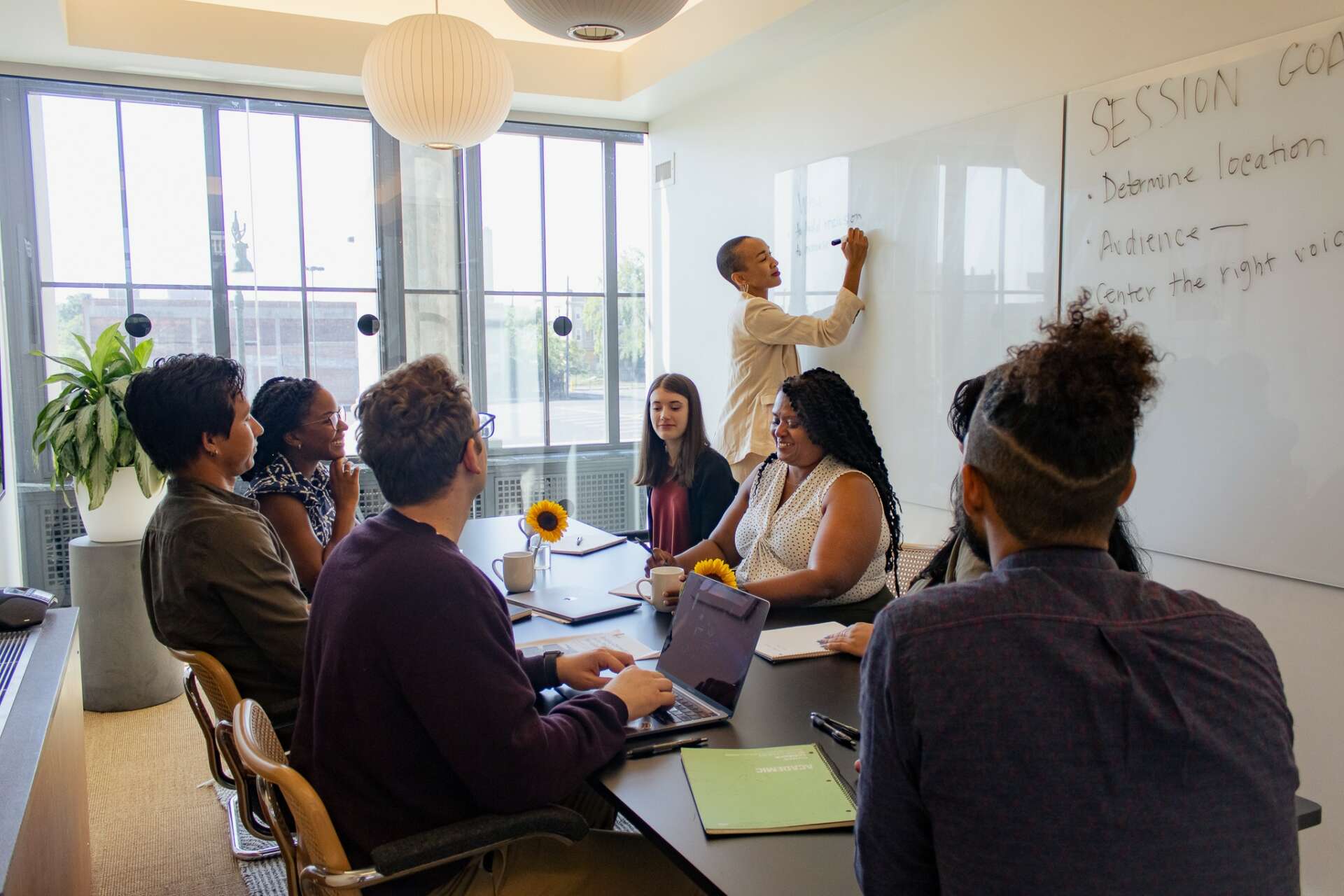We’re excited to introduce you to the always interesting and insightful Michaela Ayers. We hope you’ll enjoy our conversation with Michaela below.
Michaela, looking forward to hearing all of your stories today. We’d love to hear about a project that you’ve worked on that’s meant a lot to you.
I do not think it was an accident that I was born a Black woman. It is the identity that shapes my access to belonging, ignites my creativity, and influences the majority of my lived experiences. That is why my project, Black Her Stories, provides the deepest, richest, and most nourishing meaning for me.
As an avid learner, I have often felt an acute dissatisfaction with the narrative of American history. As a community member, I found myself bored with the formulaic celebrations of Black History Month; a conflict I still live with. So, like so many artists, I set out to build a bridge to a world that I wanted to see.
I created Black Her Stories (BHS) in 2019, just a few months after I founded Nourish. Beginning as a community event in Seattle, Black Her Stories provided a platform to build relationships while sharing stories about the creative contributions of Black women throughout history and in modern times.
In the early days, BHS looked like a panel discussion that featured conversations with local Black women leaders about the icons who inspired them. This practice of Black women honoring other Black women is important because I am also a proud sister who takes sistering very seriously. It is also a way to push back against anti-black stereotypes by providing a collective memory that is rooted in respect for Black women.
The early days of experimentation paid off when local leader, Jodi-Ann Burey, attended the very first event and helped me secure a partnership with a coworking space where I went on to host Nourish community events more regularly and build the BHS universe.
Flash forward five years later, BHS is still going strong and has evolved into a community-minded podcast. The project continues to feed my hunger for Black History while giving me space to flex my creative storytelling and community-organizing muscles.


Michaela, love having you share your insights with us. Before we ask you more questions, maybe you can take a moment to introduce yourself to our readers who might have missed our earlier conversations?
My name is Michaela Ayers (she/her) and I am an experience designer and facilitator who currently resides in Detroit, Michigan. I am also the founder of Nourish, an anti-racist collective that advances the values of diversity, equity, and inclusion through education and events. Through my work, I deliver experiences to creative/arts-based organizations that are immersive, meaningful, and most importantly fun.
I blend methods from action learning and human-centered design to deliver interactive workshops and inclusive events to my clients and community. As a facilitator, my primary goal is to create spaces where people can skip the small talk, be curious, and build authentic relationships.



What’s a lesson you had to unlearn and what’s the backstory?
I think the biggest lesson that I had to learn is that my entrepreneurial journey is not going to look perfect, traditional, or linear. It’s been quite the opposite, really. It has been a challenge to push past binary ways of thinking that promotes “one right way” of doing things and ease into the messiness of being a creator.
I’ve had to make peace with the fact that my creative journey and the process of building my business will look different. I’ve learned to not fall into the trap of comparing myself to other small business owners on the internet/social media. Easier said than done!
Over the years, I’ve experimented with different services and solutions because it was what I thought I should be doing, instead of leading with what is most authentic to me. It’s been a process of being ok with making mistakes (even big ones!), trusting myself, and constantly evolving. While there are plenty of YouTube videos, books, guides, mentors, and coaches out there, the biggest lesson is that this journey will be my own.



Is there something you think non-creatives will struggle to understand about your journey as a creative? Maybe you can provide some insight – you never know who might benefit from the enlightenment.
I want to challenge the perception that a person can be a non-creative. I believe that creativity is a power we all have access to as humans. Someone reading this article might not think of themselves as creative because they aren’t a visual/sound artist or because they don’t design products. It is easy to uphold this narrow view of creativity because we’re inundated with messages that shape our perceptions of who a creative is/is not. I’m here to shake up that thought!
The truth is, everyone has the capacity to be creative. I often encourage my learners to reflect on the creative elements of their day. We design our outfits, we design what we eat for breakfast, and we design the route we take to work. Creativity isn’t only about a profession or tangible output, it’s a flexible mindset that shapes our lives.
One of my favorite quotes from Maya Angelou is that you can’t use up creativity. The more you use it, the more you have. It’s all about practice/repetition (not perfectionism). So if your creativity is cooking, planning a vacation, or making a beautiful excel spreadsheet. Whatever it is, know that your form of creativity is correct for you and that the world needs more of your unique expression.
Contact Info:
- Website: http://nourish.community/
- Instagram: https://www.instagram.com/nourish_____/
- Facebook: https://www.facebook.com/nourishingcommunity
- Linkedin: https://www.linkedin.com/in/michaelaayers/
- Youtube: https://www.youtube.com/@nourish______/videos
Image Credits
Na Forest Lim, Radical Play (Collage/Art Party photos) Brandon Scott Herrel (Black Her Stories photos + garden dinner party photos) Nick Hagen (Michaela’s headshot)


